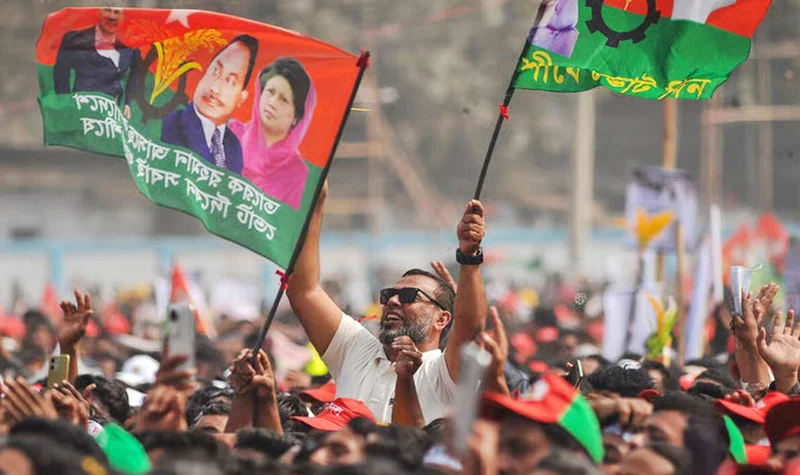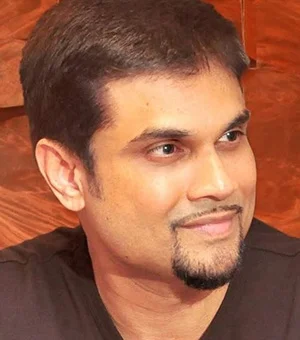Features
Non Governmental Organizations and becoming a UN civil servants

Excerpted from volume ii of the Sarath Amunugama autobiographhy
With the New Information Order debate occupying centre stage many global NGOs of both left and right ideological backgrounds entered the field of research and training in mass media. The most influential and well-funded of these was the Asian Mass Media and Information Centre [AMIC] which was set up as a joint venture of the Freidrich Ebert Stiftung of Germany and the Government of Singapore. AMIC was located in Singapore in a building provided by the Singapore Government.
The Chairman of the Board was their Director of Information who was a friendly, efficient and hard drinking colleague named Roy Daniel who had joined Lee Kuan Yew when he set up the Progressive Peoples Party [PPP]. Since I served AMIC first as a member of the Governing Board and later, fora short time, as its Secretary-General more about it will be written later in this chapter.
Another influential NGO which entered the field of media research and training was IPPF – The International Planned Parenthood Federation, which was well funded at least till President Ronald Reagan cut off funding for it under pressure from his pro-life backers. IPPF had its head office first in Geneva and later in London.
Early in its history I as Director of Information in the 1970 regime of Mrs. Bandaranaike, organized a seminar on family health with Angela Molnos who was a Director of IPPF working out of Geneva and closely associated with WHO .We brought out a book of essays on family health in South Asia which was published by IPPF. I also organized a seminar in Colombo with the assistance of the then deputy Minister of Health Siva Obeyesekere on Family Health of which Bradman Weerakoon, then GA Amparai, was a participant.
Following this Bradman then took a special interest in this field and later became the Secretary-General of IPPF with its office in London. Many Sri Lankan health media personnel were trained by IPPF in its heyday. It advocated a more enlightened policy towards women and family health which went a long way in ameliorating the living standards of poor women. It worked closely with UNFPA the special programme set up by the UN to promote progressive family health and population policies.
The UNFPA was backed by President Jimmy Carter whose mother had been a social service volunteer in India and imbued her son with a sympathetic understanding of the poor. However racists on both sides of the divide were fanatically opposed to this programme and with Ronald Reagan in the White House the US withdrew backing for this initiative leading to its virtual demise.
While Bradman Weerakoon joined IPPF, Neville Jayaweera who also faced the wrath of Mrs. B left the CCS and joined the media division of the World Conference of Churches after a sudden conversion to Christianity. He became a star speaker of the WCC and helped in drawing its considerable financial resources to the field of media criticism and training. Since much of its funding for training came from Scandinavian churches I met Neville on my visits to Norway and Sweden on behalf of UNESCO. I allocated funds from UNESCO to both IPPF and WCC later at a time when they were in financial difficulties. It was a notable coincidence that three of the global media organizations were headed by three ex-CCS Bradman, Neville and myself at a crucial juncture in the debate.
But the Media NGO which made Sri Lanka its home base was the Norway funded Worldview International Foundation which worked very closely with our Ministry. Its founder was Arne Fjortoff, a leading Norwegian broadcaster who has now spent virtually his whole adult life in helping the poor and the neglected of the Asian region to use media to overcome their poverty. I associated with him practically from his first days in our country. More details will be given later about my role as the Deputy Secretary-General of WIF.
Good Bye to All That
By the beginning of the 1980s I had been in the field of media for over fifteen years as a civil servant. I felt that it was now time to move on. JRJ was getting ready to contest the Presidency for the second term and if I did not leave now it would not be possible to depart amicably after his campaign was launched. As mentioned earlier, all the CCS officers for whom there was a global demand could find good assignments in the UN system or in other international organizations.
Bradman and Neville had joined international organizations well below their capabilities. They were punching below their weight because both had missed the timing of their departure. They felt they had no alternative but to leave the country to escape Mrs. B’s wrath. JRJ himself did not favour them; so they had to hurriedly accept what was available at that time. My own CCS batchmates were leaving the public service, some even by retiring without a pension. The first to go was Raja Gomez who joined the Commonwealth Secretariat. He was followed by Bernard Wijeweera who also joined an International Agency. Harsha Wickremasinghe joined ESCAP for some time but came back after a few years.
Tragically two of my batchmates – Tissa Gunasinghe and Buddhin Gunatunga – died young. Before us, there were a flock of CCS seniors who migrated to all parts of the world. I was lucky to have several top positions offered to me. This was because I had high visibility as a player in the New Information Order debate. Only a few other civil servants have been ‘branded’ as specialists having come in as generalist CCS to the public service.
This was a time for specialists and Gamini Corea, Jayantha Dhanapala and I were perhaps the only Sri Lankan bureaucrats to carve out a globally acceptable specialist status for ourselves. That was mostly a matter of fortuitous timing and a lucky roll of the dice. We were lucky to be recognized as a ‘brand’ when the global decision makers became interested in our respective fields of specialization. Another crucial qualification was our linguistic skills. Without proficiency in at least one international language it is not possible to enter the UN at a senior level. With my proficiency in English and French I had plenty of job offers.
Ananda Guruge
I mentioned that timing was importantwhen joining International organisations. The best example of mistimingwas Ananda Guruge. I had a special relationship with Ananda because my father was his teacher and mentor in Deiyannewela. My father had a special care and regard for bright students and Ananda was the brightest and the best of the lot. For my father he could do no wrong and Ananda reciprocated that affection. He was freely at home in our residence in Deiyannewela where my father would listen patiently to his recital of successes.
Ananda’s father worked in the Kandy Post Office and was a great friend of my father. He had migrated from Weihena in Galle district and married a lady from Kandy and settled down there. He too was a fascinating talker and would tell us about his village and Galle which I as a school boy at that time, lapped up. Later his experiences were reinforced in my imagination by reading Martin Wickramasinghe’s novels of the Deep South. It may have been that my father with his Panadura background was more attentive to the descriptions of the sea and Galle life than other listeners who had no hope of
even seeing the “Ho Gana Pokuna” which was the way Kandyan villagers imagined the sea. Ananda who was about 12 years older than me was my surrogate elder brother. Every Sunday we, and my cousin Nimal who lived with us and attended Trinity College, would walk to Katukelle for religious instruction. Our Sunday school was located in what was then called Gandhi College which faced the Peradeniya road at Katukelle. Gandhi College was a private school for the people of estate areas though others from far away also came to learn English there. The most famous alumnus of this college was D.M. Jayaratne who went on to become the Prime Minister of the country. He probably picked up his radicalism at an early age because many of the Socialist and Communist Party supporters lived in Katukelle and used the Gandhi College Hall for their clandestine meetings.

On Sundays the college hall was turned into a Sunday school and we sat on the school benches to receive instruction on Buddhism. But I remember even now that our Sunday school was a hotbed for radicals because we learnt songs about Gandhi, Nehru and Patel and the Indian Freedom struggle which we sang at the beginning of the day [Gandhi, Nehru, Patel Vani Weeravaro – Indee Nidhasata etc]. Many of our volunteer teachers wore the ‘national dress’ and the monks were mostly from the Amarapura Nikaya including the priest from Deiyannewela Temple who taught Ananda, Nimal and me the rudiments of Sanskrit.
Even now I can recite those slokas from memory – a weapon I deploy when I speak at public meetings, which impress the monks no end. So much so that I overhear monks say “Now he will begin with the slokas” when I get up to speak. But I was hoist on my own petard, when in Ratnapura Ridgeway Tillekeratne became the Government Agent. He was a Sanskrit graduate and probably one of the best scholars in the field. I thought it more prudent not to utter my slokas in his presence.
Kirielle Gnanwimala, the famous scholar monk of Ratnapura, who sensed my predicament, told his audience that one Sanskrit scholar was more than sufficient for Ratnapura district. Henpitagedera Gnanaseeha was another outstanding Sanskritist in Ratnapura. Unlike me Ananda applied himself to his Pali and Sanskrit studies and entered the University with a scholarship in Oriental languages. Earlier he had done brilliantly in the ‘Prachina’ examination held by the Oriental society which entitled him to be called a ‘Prachina Pundit’.
My father would laughingly say that while Ananda scored high marks and won a prize, his teacher in Sanskrit and Pali, our Temple priest, had failed the exam. Ananda followed it up with a first class degree in Sanskrit and sailed into the CCS. He was an outstanding civil servant of his time and an indispensable official in the Education Ministry. When I was in two minds about joining the CCS, having been appointed to a permanent post in the Department of Sociology at Peradeniya a few months previously, my father wanted me to discuss my dilemma with Guruge. I went to his residence and told him of my preference for the University.
He did not mince his words. He told me to accept the CCS post. If I wanted to research problems and write articles, he said that it was better done as a civil servant as it will have more credibility than the writings of University staffers. As usual he cited himself as an example. He had already got his PhD and was the leading figure in setting up Vidyodaya and Vidyalankara universities. In fact he was playing a dual role as Professor of Oriental Languages at Vidyodaya. I went back to Kandy, reported Ananda’s advice which was enthusiastically endorsed by my father, and decided to begin work as a Civil Servant.
Ananda was one of the earliest Civil Servants to join UNESCO when it was mostly concerned with education. Being a senior official of our Education Ministry he was easily recruited to the UN body. While this was no doubt prestigious it was a case of bad timing. He was comparatively young and had accepted a junior position in UNESCO. All UN posts are classified in a uniform way. The Professional categories are classified from P5 to P1 in ascending order. Senior to that are the Director levels D1 to D2. Above that are ADGs and the Director General himself. So the range of employment is from PI to DG. Guruge would have joined early at P2 level which meant that he had a hard grind to the top in his institution.
Gamini Corea, Jayntha Dhanapala and I were lateral entrants. This meant that we could join at a senior level. For instance when I joined UNESCO at D1 level Guruge was a P4 having slowly risen within his department. By joining laterally at a later point of time I was several steps ahead of him. Thus I, many years junior in the Ceylon Civil Service, could enter UNESCO at a much more senior level than the earlier entrants among whom was Ananda Guruge.
That however did not prevent us from renewing our old friendship in Paris where he was transferred after a long stay in the Bangkok office of UNESCO. I lived in Rue Jean Daudin and Ananda and his wife Sujatha lived in nearby Rue Pasteur and we met regularly in office and on social occasions. He always encouraged me and was delighted when I got my Doctorate in Paris.
I always referred to Ananda as my role model which pleased him and brought back memories of my father’s affection for him. On his last visit to Sri Lanka, Dinesh Gunawardena and I had planned a felicitation dinner for him. I was to be the chief speaker. Unfortunately we had to put it off because Ananda had to leave for a meeting in Bangkok. We planned to meet soon in Colombo but it was not to be. A busy man who neglected his health, he died of a heart attack while flying to keep an appointment for a lecture on Buddhism.
Features
Crucial test for religious and ethnic harmony in Bangladesh

 Will the Bangladesh parliamentary election bring into being a government that will ensure ethnic and religious harmony in the country? This is the poser on the lips of peace-loving sections in Bangladesh and a principal concern of those outside who mean the country well.
Will the Bangladesh parliamentary election bring into being a government that will ensure ethnic and religious harmony in the country? This is the poser on the lips of peace-loving sections in Bangladesh and a principal concern of those outside who mean the country well.
The apprehensions are mainly on the part of religious and ethnic minorities. The parliamentary poll of February 12th is expected to bring into existence a government headed by the Bangladesh Nationalist Party (BNP) and the Islamist oriented Jamaat-e-Islami party and this is where the rub is. If these parties win, will it be a case of Bangladesh sliding in the direction of a theocracy or a state where majoritarian chauvinism thrives?
Chief of the Jamaat, Shafiqur Rahman, who was interviewed by sections of the international media recently said that there is no need for minority groups in Bangladesh to have the above fears. He assured, essentially, that the state that will come into being will be equable and inclusive. May it be so, is likely to be the wish of those who cherish a tension-free Bangladesh.
The party that could have posed a challenge to the above parties, the Awami League Party of former Prime Minister Hasina Wased, is out of the running on account of a suspension that was imposed on it by the authorities and the mentioned majoritarian-oriented parties are expected to have it easy at the polls.
A positive that has emerged against the backdrop of the poll is that most ordinary people in Bangladesh, be they Muslim or Hindu, are for communal and religious harmony and it is hoped that this sentiment will strongly prevail, going ahead. Interestingly, most of them were of the view, when interviewed, that it was the politicians who sowed the seeds of discord in the country and this viewpoint is widely shared by publics all over the region in respect of the politicians of their countries.
Some sections of the Jamaat party were of the view that matters with regard to the orientation of governance are best left to the incoming parliament to decide on but such opinions will be cold comfort for minority groups. If the parliamentary majority comes to consist of hard line Islamists, for instance, there is nothing to prevent the country from going in for theocratic governance. Consequently, minority group fears over their safety and protection cannot be prevented from spreading.
Therefore, we come back to the question of just and fair governance and whether Bangladesh’s future rulers could ensure these essential conditions of democratic rule. The latter, it is hoped, will be sufficiently perceptive to ascertain that a Bangladesh rife with religious and ethnic tensions, and therefore unstable, would not be in the interests of Bangladesh and those of the region’s countries.
Unfortunately, politicians region-wide fall for the lure of ethnic, religious and linguistic chauvinism. This happens even in the case of politicians who claim to be democratic in orientation. This fate even befell Bangladesh’s Awami League Party, which claims to be democratic and socialist in general outlook.
We have it on the authority of Taslima Nasrin in her ground-breaking novel, ‘Lajja’, that the Awami Party was not of any substantial help to Bangladesh’s Hindus, for example, when violence was unleashed on them by sections of the majority community. In fact some elements in the Awami Party were found to be siding with the Hindus’ murderous persecutors. Such are the temptations of hard line majoritarianism.
In Sri Lanka’s past numerous have been the occasions when even self-professed Leftists and their parties have conveniently fallen in line with Southern nationalist groups with self-interest in mind. The present NPP government in Sri Lanka has been waxing lyrical about fostering national reconciliation and harmony but it is yet to prove its worthiness on this score in practice. The NPP government remains untested material.
As a first step towards national reconciliation it is hoped that Sri Lanka’s present rulers would learn the Tamil language and address the people of the North and East of the country in Tamil and not Sinhala, which most Tamil-speaking people do not understand. We earnestly await official language reforms which afford to Tamil the dignity it deserves.
An acid test awaits Bangladesh as well on the nation-building front. Not only must all forms of chauvinism be shunned by the incoming rulers but a secular, truly democratic Bangladesh awaits being licked into shape. All identity barriers among people need to be abolished and it is this process that is referred to as nation-building.
On the foreign policy frontier, a task of foremost importance for Bangladesh is the need to build bridges of amity with India. If pragmatism is to rule the roost in foreign policy formulation, Bangladesh would place priority to the overcoming of this challenge. The repatriation to Bangladesh of ex-Prime Minister Hasina could emerge as a steep hurdle to bilateral accord but sagacious diplomacy must be used by Bangladesh to get over the problem.
A reply to N.A. de S. Amaratunga
A response has been penned by N.A. de S. Amaratunga (please see p5 of ‘The Island’ of February 6th) to a previous column by me on ‘ India shaping-up as a Swing State’, published in this newspaper on January 29th , but I remain firmly convinced that India remains a foremost democracy and a Swing State in the making.
If the countries of South Asia are to effectively manage ‘murderous terrorism’, particularly of the separatist kind, then they would do well to adopt to the best of their ability a system of government that provides for power decentralization from the centre to the provinces or periphery, as the case may be. This system has stood India in good stead and ought to prove effective in all other states that have fears of disintegration.
Moreover, power decentralization ensures that all communities within a country enjoy some self-governing rights within an overall unitary governance framework. Such power-sharing is a hallmark of democratic governance.
Features
Celebrating Valentine’s Day …

 Valentine’s Day is all about celebrating love, romance, and affection, and this is how some of our well-known personalities plan to celebrate Valentine’s Day – 14th February:
Valentine’s Day is all about celebrating love, romance, and affection, and this is how some of our well-known personalities plan to celebrate Valentine’s Day – 14th February:
Merlina Fernando (Singer)
Yes, it’s a special day for lovers all over the world and it’s even more special to me because 14th February is the birthday of my husband Suresh, who’s the lead guitarist of my band Mission.
We have planned to celebrate Valentine’s Day and his Birthday together and it will be a wonderful night as always.
We will be having our fans and close friends, on that night, with their loved ones at Highso – City Max hotel Dubai, from 9.00 pm onwards.
Lorensz Francke (Elvis Tribute Artiste)
On Valentine’s Day I will be performing a live concert at a Wealthy Senior Home for Men and Women, and their families will be attending, as well.
I will be performing live with romantic, iconic love songs and my song list would include ‘Can’t Help falling in Love’, ‘Love Me Tender’, ‘Burning Love’, ‘Are You Lonesome Tonight’, ‘The Wonder of You’ and ‘’It’s Now or Never’ to name a few.
To make Valentine’s Day extra special I will give the Home folks red satin scarfs.
Emma Shanaya (Singer)
I plan on spending the day of love with my girls, especially my best friend. I don’t have a romantic Valentine this year but I am thrilled to spend it with the girl that loves me through and through. I’ll be in Colombo and look forward to go to a cute cafe and spend some quality time with my childhood best friend Zulha.
JAYASRI

Emma-and-Maneeka
This Valentine’s Day the band JAYASRI we will be really busy; in the morning we will be landing in Sri Lanka, after our Oman Tour; then in the afternoon we are invited as Chief Guests at our Maris Stella College Sports Meet, Negombo, and late night we will be with LineOne band live in Karandeniya Open Air Down South. Everywhere we will be sharing LOVE with the mass crowds.
Kay Jay (Singer)
I will stay at home and cook a lovely meal for lunch, watch some movies, together with Sanjaya, and, maybe we go out for dinner and have a lovely time. Come to think of it, every day is Valentine’s Day for me with Sanjaya Alles.
Maneka Liyanage (Beauty Tips)
On this special day, I celebrate love by spending meaningful time with the people I cherish. I prepare food with love and share meals together, because food made with love brings hearts closer. I enjoy my leisure time with them — talking, laughing, sharing stories, understanding each other, and creating beautiful memories. My wish for this Valentine’s Day is a world without fighting — a world where we love one another like our own beloved, where we do not hurt others, even through a single word or action. Let us choose kindness, patience, and understanding in everything we do.
Janaka Palapathwala (Singer)

Janaka
Valentine’s Day should not be the only day we speak about love.
From the moment we are born into this world, we seek love, first through the very drop of our mother’s milk, then through the boundless care of our Mother and Father, and the embrace of family.
Love is everywhere. All living beings, even plants, respond in affection when they are loved.
As we grow, we learn to love, and to be loved. One day, that love inspires us to build a new family of our own.
Love has no beginning and no end. It flows through every stage of life, timeless, endless, and eternal.
Natasha Rathnayake (Singer)
We don’t have any special plans for Valentine’s Day. When you’ve been in love with the same person for over 25 years, you realise that love isn’t a performance reserved for one calendar date. My husband and I have never been big on public displays, or grand gestures, on 14th February. Our love is expressed quietly and consistently, in ordinary, uncelebrated moments.
With time, you learn that love isn’t about proving anything to the world or buying into a commercialised idea of romance—flowers that wilt, sweets that spike blood sugar, and gifts that impress briefly but add little real value. In today’s society, marketing often pushes the idea that love is proven by how much money you spend, and that buying things is treated as a sign of commitment.
Real love doesn’t need reminders or price tags. It lives in showing up every day, choosing each other on unromantic days, and nurturing the relationship intentionally and without an audience.
This isn’t a judgment on those who enjoy celebrating Valentine’s Day. It’s simply a personal choice.
Melloney Dassanayake (Miss Universe Sri Lanka 2024)
 I truly believe it’s beautiful to have a day specially dedicated to love. But, for me, Valentine’s Day goes far beyond romantic love alone. It celebrates every form of love we hold close to our hearts: the love for family, friends, and that one special person who makes life brighter. While 14th February gives us a moment to pause and celebrate, I always remind myself that love should never be limited to just one day. Every single day should feel like Valentine’s Day – constant reminder to the people we love that they are never alone, that they are valued, and that they matter.
I truly believe it’s beautiful to have a day specially dedicated to love. But, for me, Valentine’s Day goes far beyond romantic love alone. It celebrates every form of love we hold close to our hearts: the love for family, friends, and that one special person who makes life brighter. While 14th February gives us a moment to pause and celebrate, I always remind myself that love should never be limited to just one day. Every single day should feel like Valentine’s Day – constant reminder to the people we love that they are never alone, that they are valued, and that they matter.
I’m incredibly blessed because, for me, every day feels like Valentine’s Day. My special person makes sure of that through the smallest gestures, the quiet moments, and the simple reminders that love lives in the details. He shows me that it’s the little things that count, and that love doesn’t need grand stages to feel extraordinary. This Valentine’s Day, perfection would be something intimate and meaningful: a cozy picnic in our home garden, surrounded by nature, laughter, and warmth, followed by an abstract drawing session where we let our creativity flow freely. To me, that’s what love is – simple, soulful, expressive, and deeply personal. When love is real, every ordinary moment becomes magical.
Noshin De Silva (Actress)
Valentine’s Day is one of my favourite holidays! I love the décor, the hearts everywhere, the pinks and reds, heart-shaped chocolates, and roses all around. But honestly, I believe every day can be Valentine’s Day.
It doesn’t have to be just about romantic love. It’s a chance to celebrate love in all its forms with friends, family, or even by taking a little time for yourself.
Whether you’re spending the day with someone special or enjoying your own company, it’s a reminder to appreciate meaningful connections, show kindness, and lead with love every day.
And yes, I’m fully on theme this year with heart nail art and heart mehendi design!
Wishing everyone a very happy Valentine’s Day, but, remember, love yourself first, and don’t forget to treat yourself.
Sending my love to all of you.
Features
Banana and Aloe Vera

 To create a powerful, natural, and hydrating beauty mask that soothes inflammation, fights acne, and boosts skin radiance, mix a mashed banana with fresh aloe vera gel.
To create a powerful, natural, and hydrating beauty mask that soothes inflammation, fights acne, and boosts skin radiance, mix a mashed banana with fresh aloe vera gel.
This nutrient-rich blend acts as an antioxidant-packed anti-ageing treatment that also doubles as a nourishing, shiny hair mask.
* Face Masks for Glowing Skin:
Mix 01 ripe banana with 01 tablespoon of fresh aloe vera gel and apply this mixture to the face. Massage for a few minutes, leave for 15-20 minutes, and then rinse off for a glowing complexion.
* Acne and Soothing Mask:
Mix 01 tablespoon of fresh aloe vera gel with 1/2 a mashed banana and 01 teaspoon of honey. Apply this mixture to clean skin to calm inflammation, reduce redness, and hydrate dry, sensitive skin. Leave for 15-20 minutes, and rinse with warm water.
* Hair Treatment for Shine:
Mix 01 fresh ripe banana with 03 tablespoons of fresh aloe vera gel and 01 teaspoon of honey. Apply from scalp to ends, massage for 10-15 minutes and then let it dry for maximum absorption. Rinse thoroughly with cool water for soft, shiny, and frizz-free hair.
-

 Features5 days ago
Features5 days agoMy experience in turning around the Merchant Bank of Sri Lanka (MBSL) – Episode 3
-

 Business6 days ago
Business6 days agoZone24x7 enters 2026 with strong momentum, reinforcing its role as an enterprise AI and automation partner
-

 Business5 days ago
Business5 days agoRemotely conducted Business Forum in Paris attracts reputed French companies
-

 Business5 days ago
Business5 days agoFour runs, a thousand dreams: How a small-town school bowled its way into the record books
-

 Business5 days ago
Business5 days agoComBank and Hayleys Mobility redefine sustainable mobility with flexible leasing solutions
-

 Business2 days ago
Business2 days agoAutodoc 360 relocates to reinforce commitment to premium auto care
-

 Business6 days ago
Business6 days agoHNB recognized among Top 10 Best Employers of 2025 at the EFC National Best Employer Awards
-

 Midweek Review2 days ago
Midweek Review2 days agoA question of national pride













